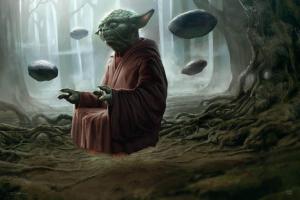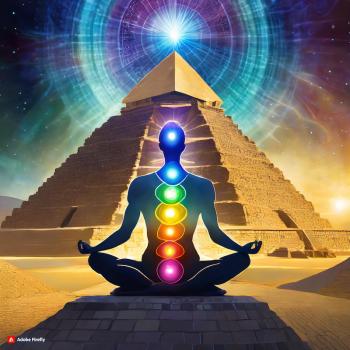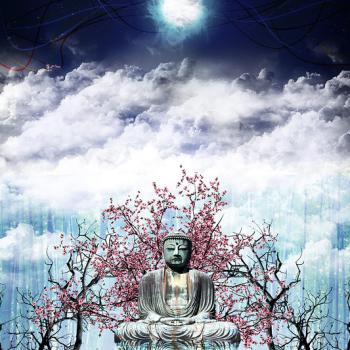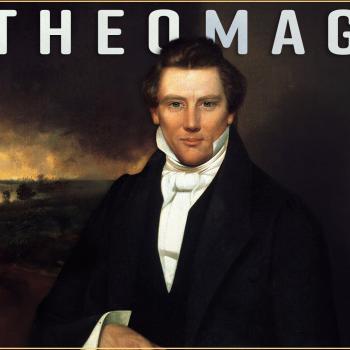As we celebrate “May the fourth be with you,” we ponder a universe teeming with mystical energy, moral dilemmas, and spiritual undertones. At the heart of the Star Wars saga lies a tale fastened with elements borrowed from various cultural and religious philosophies, notably Hinduism and Buddhism.
Central to the Star Wars universe is the concept of the Force, an energy field created by all living things, connecting them and influencing their actions. This concept bears a striking resemblance to the Hindu concept of prana or the Daoist concept of Chi, the subtle stream of energy that animates the world.
The dichotomy between the Jedi and the Sith mirrors the contrast between light and darkness, good and evil, prevalent in Hindu and Buddhist philosophy. The Jedi Order, with its commitment to peace, knowledge, and selflessness, reflects the ideals of dharma and karma. On the other hand, the Sith embrace passion, desire for power, and the pursuit of personal gain.

Like many fantasy or science fiction stories, Lucas drew inspiration from Joseph Campbell’s concept of the hero’s journey, a narrative pattern found in myths and legends worldwide. This archetype aligns with the spiritual journey depicted in Hindu and Buddhist scriptures, where the protagonist undergoes trials, faces inner demons, and ultimately achieves enlightenment or self-realization. Luke Skywalker’s path from humble beginnings to Jedi Knight exemplifies this journey of spiritual initiation, reflecting the quest for self-discovery and transcendence.
Yoda, the wise Jedi Master, embodies principles reminiscent of Eastern spiritual teachings, particularly those of Zen Buddhism. His cryptic wisdom, emphasis on mindfulness and living in the present moment, and rejection of material possessions resonate with Zen philosophy. Yoda’s famous line, “Do or do not, there is no try,” harkens the Zen concept of total commitment and focus. One can also imagine Yoda uttering the Zen proverb, “Before enlightenment, chop wood and carry water. After enlightenment, chop wood and carry water.”
And let’s not forget about the ancient Egyptian influence. The Djed pillars (pronounced Jed) in Egyptian temples are a symbol of the god Osiris and were often worn as protective amulets. And interestingly enough, the Djed pillar resembles a lightsaber.

The notion of reincarnation, originating in Hinduism and Buddhism, finds expression in Star Wars through the concept of Force ghosts. Jedi Masters like Obi-Wan Kenobi and Yoda transcend physical death, becoming one with the Force yet retaining their individual consciousness. This parallels the Eastern belief in the cyclical nature of existence and the continuity of the soul beyond bodily death.
The quest for balance between opposing forces is a recurring theme in both Eastern spirituality and Star Wars. Just as Hinduism emphasizes the balance between order (dharma) and chaos (adharma), the Jedi seek harmony between the light and dark sides of the Force. This also harkens to the Buddhist concept of traversing the middle way. Anakin Skywalker’s fall to the dark side and subsequent redemption highlight the consequences of imbalance and the importance of restoring equilibrium.
In fact, Irvin Kirshner, the director of “The Empire Strikes Back,” stated in an interview that Yoda was created in part to evangelize Buddhism: “I want to introduce some Zen here,” he said, “because I don’t want the kids to walk away just thinking that everything is a shoot-‘em-up.”
Throughout “Star Wars,” the Jedi talk often about mindfulness and concentration, attachment and interdependence, are all key Buddhist concepts and are steps on the Eightfold Path, the Buddha’s guide to spiritual liberation. In “The Last Jedi,” when the lead character Rey is meditating, she touches the ground, which mirrors the iconic image of the “earth-touching” Buddha.

As we celebrate “May the 4th Be with you,” George Lucas’s incorporation of Hindu, Buddhist and other Eastern elements enriches the Star Wars narrative and infuses it with timeless wisdom and philosophical depth. Through the Force, the Jedi, and the hero’s journey, Lucas invites audiences to explore themes of morality, destiny, and the nature of existence. By drawing from these ancient traditions, “Star Wars” transcends mere entertainment, offering profound insights into the human condition and our place in the cosmos. As we journey through the galaxy far, far away, we find echoes of our own spiritual quest for meaning and enlightenment.













